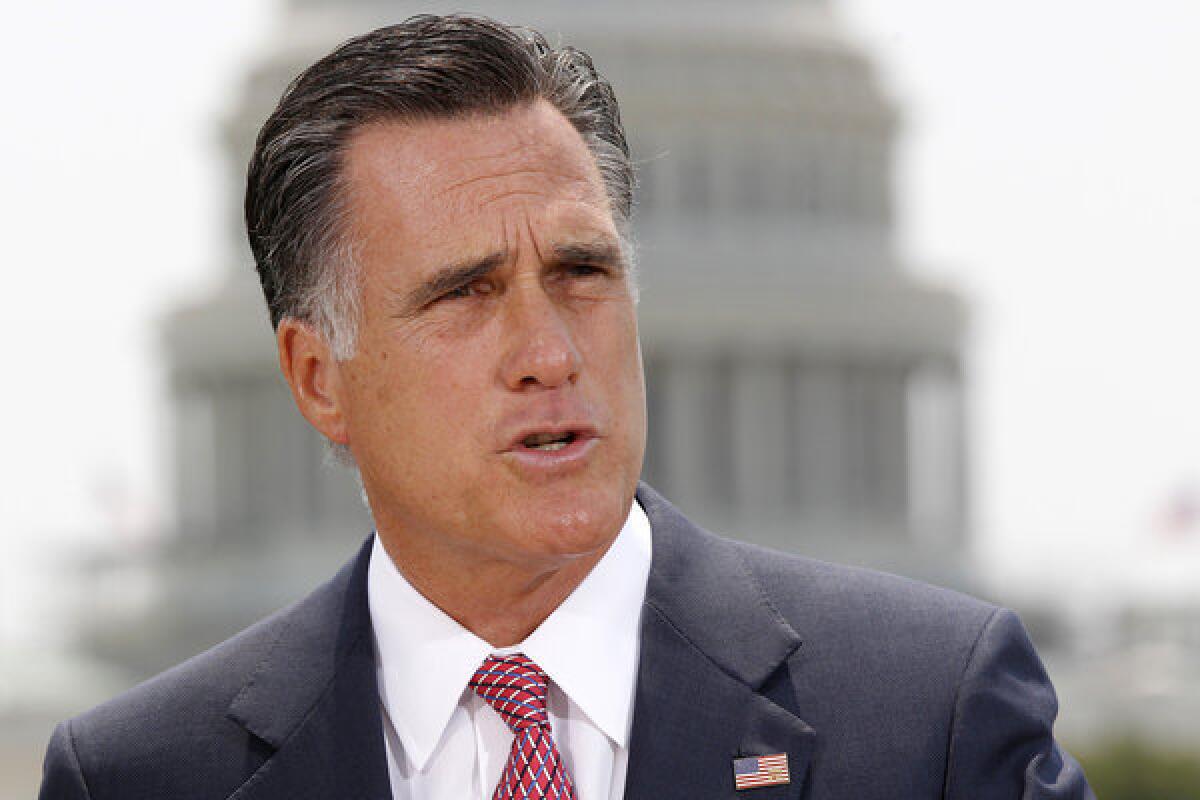Et tu, Mitt? Romney makes the wrong call on Supreme Court confirmation

- Share via
It would be a bit much to call Sen. Mitt Romney a paragon of political virtue. But the Utah senator and 2012 Republican presidential nominee did strike a profile in courage in casting the only Republican vote to convict President Trump and remove him from office.
On Tuesday, Romney did a solid for Trump in announcing that he would consider Trump’s nominee to replace the late Supreme Court Justice Ruth Bader Ginsburg. If the nomination reaches the Senate floor, he added, “I intend to vote based upon their qualifications.”
In his statement, Romney embraced one of Senate Majority Leader Mitch McConnell’s rationalizations for considering Trump’s nominee during this election year but blocking President Obama’s attempt to appoint Judge Merrick Garland in 2016.
“The historical precedent of election year nominations is that the Senate generally does not confirm an opposing party’s nominee but does confirm a nominee of its own,” Romney said. This plays into the destructive notion that Supreme Court nominees are partisan figures.
Romney’s disappointing decision chips off a good chunk of the pedestal on which he was installed after his impeachment vote.
You can argue that there’s no contradiction between voting to remove Trump from office and deciding — after your colleagues have acquitted the president — to consider and potentially confirm the president’s appointees, including a Supreme Court nominee.
But there is a larger context to which Romney seems oblivious. As the Los Angeles Times pointed out in an editorial: “The country is more sharply divided than in 2016, thanks in large part to the demagoguery of the incumbent president, who has fanned the flames of bigotry at a time of a reckoning over America’s legacy of racism.” That reality, along with the damage a rammed-through nomination would cause to the court’s image, argues for caution. Romney’s failure to recognize that reality is inexcusable.
With Romney’s decision, it seems improbable that there will be a critical mass of Republican opposition to speedy hearings and a quick confirmation vote for Trump’s nominee, who is expected to be announced at the end of the week. Nor is it likely that Trump and the Senate will agree to one of the compromises floated by some commentators — that the president would install his choice temporarily through a recess appointment, or that the Senate hold off voting on Trump’s nominee in exchange for the Democrats promising not to pack the court with additional nominees by a Democratic president.
In announcing that he would vote to convict Trump of an abuse of power for asking Ukraine to investigate former Vice President Joe Biden, Trump’s political rival, Romney said that the results of the impeachment trial would be “appealed to a higher court: the judgment of the American people.”
With the nation facing what could be a constitutional crisis, Romney should have recognized that the voters also should make the final decision on whether Trump will have a third lifetime appointment to the court.
More to Read
A cure for the common opinion
Get thought-provoking perspectives with our weekly newsletter.
You may occasionally receive promotional content from the Los Angeles Times.










